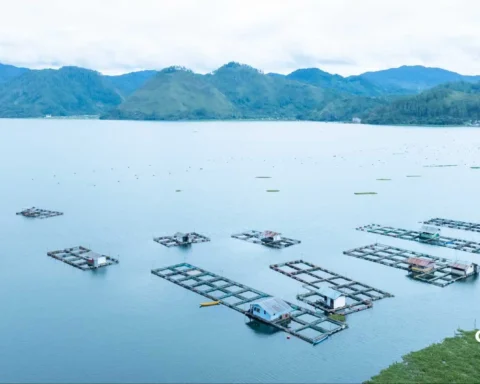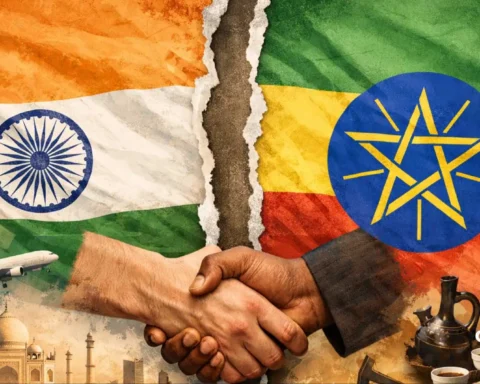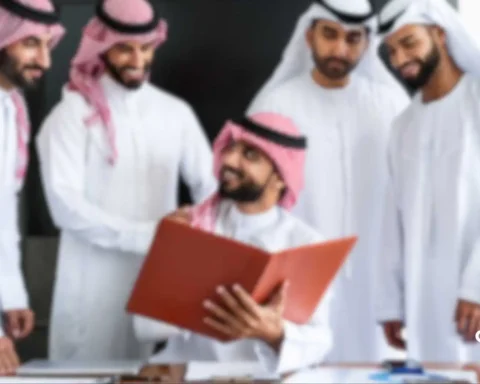The synergy between Global Indians and Africa’s transformative journey in healthcare and education unveils an inspiring narrative of empowerment, innovation, and hope. As visionaries of change, global Indian leaders, professionals, and organizations have extended their expertise and resources to address critical challenges while fostering sustainable development. This dynamic partnership is not merely transactional; it symbolizes the fusion of cultures and the pursuit of equality and opportunity.
The extraordinary impact of mutual respect transcends boundaries, fostering relationships built on shared values and aspirations. As Africa rises as a beacon of potential, the contributions of Global Indians illuminate the journey, nurturing a legacy of innovation and community growth. This exploration of collaboration invites us to celebrate the strides already made while dreaming of a future where these connections strengthen the fabric of humanity itself. Together, they prove that transformation is best achieved through solidarity.
Global Indians, driven by a visionary mindset and global progress, have significantly impacted Africa’s healthcare and education sectors. Their contributions, rooted in collaboration, innovation, and empowerment, have transcended geographical boundaries, reshaping the continent’s healthcare and education landscapes.
Let us understand the nuances.
Table of Contents
Healthcare: A Lifeline for Africa
Africa faces healthcare challenges like limited infrastructure, medicine access, and trained professionals, but global Indians are addressing these issues through various initiatives.
Training Healthcare Professionals
Indian institutions and experts have significantly assisted African medical practitioners in addressing healthcare issues through collaborative initiatives like medical exchange programs and specialized training workshops. This has fostered self-reliance and bridged the expertise gap, particularly in emergency medicine, oncology, and surgical procedures.
Technology-driven e-learning platforms and telemedicine training have improved education access in remote areas, fostering local talent and strengthening healthcare infrastructure. This has ensured long-term sustainability and resilience, showcasing the power of global collaboration in fostering healthier communities.
India is a significant location for training African medical professionals. Doctors like Peter Mativo from Kenya pursue specialized training in India due to limited opportunities in their home countries. These professionals return to Africa with advanced skills, strengthening the healthcare systems in both regions.
Affordable Medicines
Indian pharmaceutical companies promote affordable generic medicines across Africa, addressing healthcare gaps and ensuring affordability for underserved populations. Partnerships between Indian firms and African governments have strengthened this impact, enabling local production and reducing import reliance. Training programs have empowered African professionals, fostering self-reliance within the pharmaceutical sector. This collaborative approach exemplifies health equity and sustainable development, saving lives and building resilient healthcare systems, highlighting the transformative role of global collaboration in Africa’s prosperity.
Indian pharmaceutical companies, led by visionaries like Mr. Noronha, are the world’s largest provider of generic medicines, ensuring an uninterrupted supply of essential medicines in Africa. Their efforts address affordability and quality issues, ensuring a high-quality product.
Telemedicine and Technology
Global Indians are using technology to improve healthcare access in Africa, particularly in underserved areas. They are implementing telemedicine centers to bridge medical expertise gaps and provide timely consultations to remote communities. Collaborations with African governments enable the establishment of local healthcare facilities. These initiatives also incorporate traditional medicine facilities and holistic healing practices. By leveraging technology, resources, and expertise, Global Indians are fostering sustainable healthcare solutions that empower communities, enhance healthcare infrastructure, and foster skill development and innovation.
Medical Tourism
India’s medical tourism industry has become a vital link for African patients seeking specialized care. With advanced treatments in critical fields like oncology and cardiology, India offers cost-effective solutions. With state-of-the-art technologies and renowned medical professionals, it provides life-saving treatments that may be scarce in their home countries. These exchanges improve patient outcomes and foster goodwill and collaboration in healthcare innovation and training. India’s commitment to healthcare excellence is crucial in building a healthier, interconnected global community.
Education: Building Capacity for the Future
Global Indians have made significant progress in improving educational opportunities in Africa, highlighting the importance of education as a fundamental factor in development.
Higher Education Opportunities
Indian educators have also enriched Africa’s academic landscape, with a legacy dating back to the 1940s in Ethiopia, where their expertise significantly shaped the higher education sector. These contributions have set benchmarks for intellectual growth and innovation across the continent.
Additionally, India’s focus on building capacity in STEM education has catalyzed research, entrepreneurship, and technological advancement. Collaborative ventures like scholarships and mentorship programs have created pathways for African students to pursue global opportunities while addressing local challenges. The success of these partnerships exemplifies the spirit of South-South cooperation, fostering cultural exchange and global equity.
Online Learning Platforms
India’s online education initiatives, including the Pan-African e-Network Programme (PANeNP) and its successor, e-VidyaBharati, have a long-term vision that aligns with broader goals of sustainable development and South-South cooperation.
The programs aim to enhance skills and knowledge in African nations through tele-education and telemedicine, promoting self-reliance in education and healthcare sectors, and training local manpower for system operation and maintenance while bridging Africa’s digital divide and transforming the continent into an e-society. The projects prioritize local ownership, transitioning operations to African stakeholders like the African Union Commission and local governments, and ensuring long-term sustainability through public-private partnerships and local policy support.
Scholarships and Capacity Building
Global Indians have significantly aided African students through scholarships, particularly in medical and technical education, during critical periods like apartheid-era South Africa. These initiatives have provided quality education to marginalized communities, enabling trailblazing professionals like Dr. Soromini Kallichurum to become field leaders.
The Indian Council for Cultural Relations (ICCR) and the Africa Scholarship Scheme have provided scholarships to thousands of African students to study in India’s top institutions. These efforts continue with initiatives like the e-VidyaBharati project, which offers online education and expands knowledge access.
India’s commitment to global equity in education and healthcare is evident through its collaborations with Africa. These efforts have strengthened ties and contributed to a future driven by innovation, inclusivity, and shared progress, inspiring generations across continents through the legacy of education.
STEM Education
Global Indians actively promote STEM education in Africa by partnering with local institutions to foster research, innovation, and entrepreneurship. Their efforts recognize the critical role of science and technology in driving economic growth and sustainable development.
The Indian diaspora is being used to support African STEM education reform, aiming to build capacity and address educational disparities. Indian institutions collaborate with African counterparts to enhance research infrastructure, improve teacher training, and integrate STEM disciplines more effectively.
Partnerships like VAIBHAV Fellowships aim to foster collaboration between Indian academic institutions and African researchers in priority areas like IT, agriculture, and engineering. These initiatives empower African graduates with technological skills, enabling them to contribute to local industries and startups.
Initiatives involving African diaspora entrepreneurs aim to strengthen Africa’s knowledge economy, tackle global challenges like food security, and promote environmental sustainability through mutually beneficial collaborations.
Challenges and Opportunities
Global Indians face challenges in Africa’s healthcare and education sectors, including political instability, security concerns, and cultural sensitivity. However, these challenges also present opportunities for innovation and collaboration. By focusing on sustainable development goals like ensuring healthy lives and quality education, they can continue to make a lasting impact on local communities. Understanding cultural nuances is crucial for building trust within local communities.
A Visionary Partnership
The South-South cooperation between global Indians and Africa is a key example of mutual respect and shared aspirations. By addressing healthcare and education gaps, global Indians empower individuals and contribute to a prosperous Africa. To further develop this partnership, innovation should be fostered, public-private partnerships must be encouraged, capacity building should be prioritised, and the way for sustainable growth and shared prosperity should be paved.
Conclusion
Global Indians have significantly influenced Africa’s healthcare and education sectors through innovative programs, advanced STEM education, and medical training initiatives. Telemedicine and scholarships have bridged healthcare gaps, paving the way for a new era of self-reliance and sustainability in Africa. This demonstrates the potential of collaboration and shared vision.
Indian contributions have paved the way for a brighter future, with accessible and resilient healthcare systems and education as societal foundations. These initiatives tackle immediate challenges and foster innovation, entrepreneurship, and mutual growth, enhancing diplomatic and cultural ties as Africa enters the global arena.
Global Indians in Africa is a story of empowerment, transcending borders and uniting nations for equality and prosperity. They are building a future with hope, opportunity, and a commitment to a better world for generations, paving the way for progress and partnership.
Let us keep the wheels moving.









